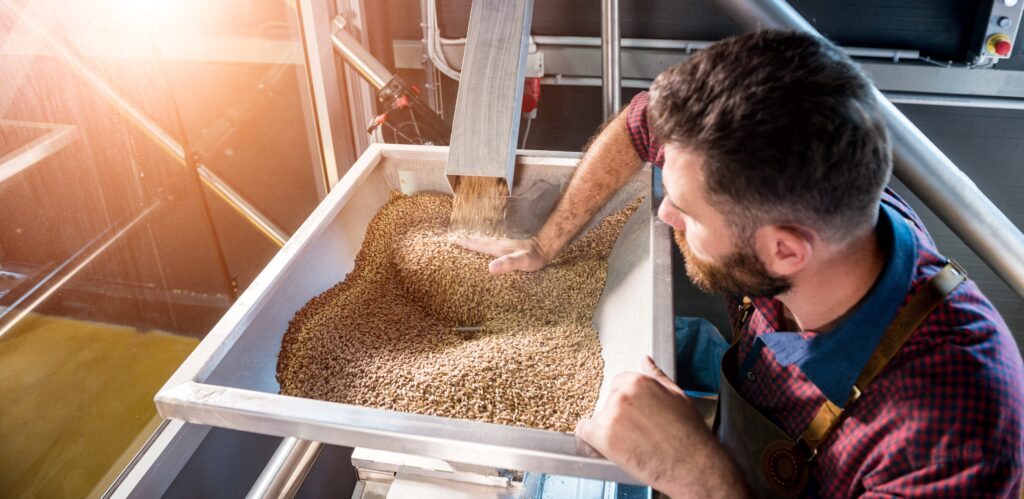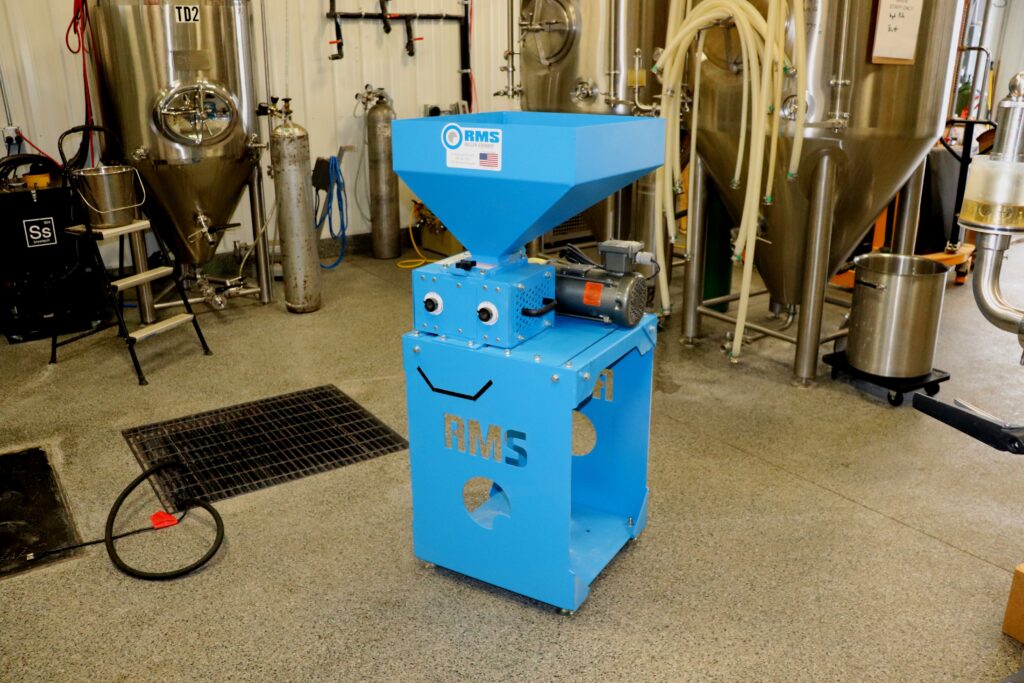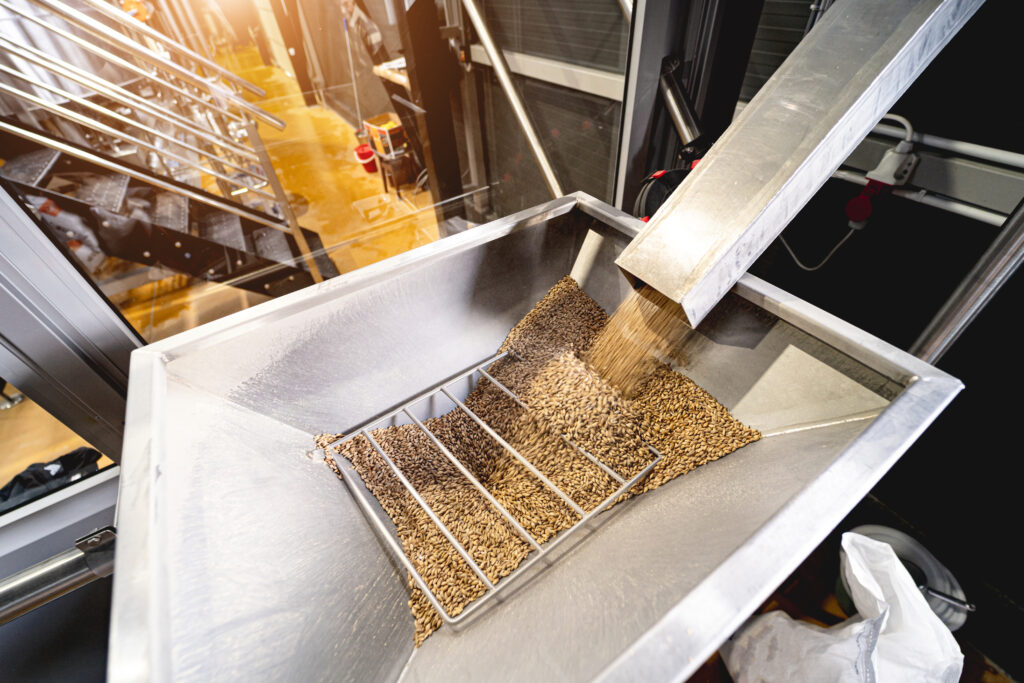What are Grain Mills?
 Brewing is an art, and every artist needs the right tools. One of the essential tools for brewers is the grain mill–also known as a malt mill or brewery mill.
Brewing is an art, and every artist needs the right tools. One of the essential tools for brewers is the grain mill–also known as a malt mill or brewery mill.
Specifically designed for brewers, malt mills focus on crushing malted barley—a core ingredient in beer production. The malting process involves soaking the barley grains, allowing them to germinate, and then drying them. This malted barley requires a specialized mill to ensure the husk remains intact while the inner part is crushed.
Whether you’re setting up your first brewery or looking to replace an old mill, choosing the right grain mill can make a major difference in the quality of your brew. This guide will walk you through the steps to purchase the perfect grain mill, and highlight some important features to look out for.
Types of Malt Mills
Milling has been an integral part of food processing for centuries. When it comes to brewing, the type of mill you choose can significantly impact the quality of your beer. Among the various milling options, roller mills stand out as a preferred choice over hammer mills for many brewers. But why?
Roller mills operate on a simple principle. As the rollers turn, they exert pressure on the grains, crushing them into particles. The distance or gap between these rollers determines the granularity of the crushed particles.
- 2-roll mills – These mills come with a single set of rollers. They are user-friendly, generally more affordable, and serve as an excellent starting point for budding breweries.
- 4-roll mills – A step up from the 2-roll mills, these feature two sets of rollers. The second set specifically targets and breaks any hard grain ends, ensuring a consistent crush.
- Other configurations – The world of brewery malt mills doesn’t stop at 4-roll mills. There are also 6-roll mills, 3-roll mills, and other designs.
Prioritize Adjustability
 The size of the grain particles can influence the extraction efficiency during the mashing process. Finer grinds can increase the surface area exposed to water, leading to better extraction of flavors and sugars. However, if the grind is too fine, it can lead to issues like a stuck mash, where the liquid doesn’t flow freely through the grain bed.
The size of the grain particles can influence the extraction efficiency during the mashing process. Finer grinds can increase the surface area exposed to water, leading to better extraction of flavors and sugars. However, if the grind is too fine, it can lead to issues like a stuck mash, where the liquid doesn’t flow freely through the grain bed.
The adjustability in most malt grinders comes from the ability to change the gap between the rollers. By narrowing or widening this gap, you can control the size of the crushed grains. It’s also important to zero or parallel your mill at all times. Ensuring your rolls stay parallel is critical to maintaining grind quality. Our easily adjustable mills are key if you want to brew a variety of beers without compromising on quality.
The Need for Magnets
During the cultivation, harvesting, storage, and transportation processes, the grain comes into contact with a variety of machinery and equipment. This interaction can sometimes lead to tiny metal fragments or shavings getting mixed with the grains.
If not removed, metal debris can cause wear and tear on the milling equipment. Over time, this can damage the rollers. For consumers, ingesting metal fragments, even if tiny, can pose health risks. Magnets in grain mills act as a safety barrier, ensuring that the final brew is delicious and safe for consumption.
When purchasing a mill, ensure it has a strong magnet system placed at the grain entry point in the mill. As grains pass over these magnets, any metal debris is attracted and held, preventing it from entering the milling mechanism.
How Starters Protect Mill Motors
 At its core, a starter acts as a mediator between the power source and the motor. When the grain mill is turned on, the starter gradually ramps up the power, protecting the motor’s health.
At its core, a starter acts as a mediator between the power source and the motor. When the grain mill is turned on, the starter gradually ramps up the power, protecting the motor’s health.
Starters can also protect against surges–sudden spikes in voltage or current. These surges can cause significant damage to the electronic systems, reducing its efficiency and lifespan. Starters act as a buffer, absorbing these surges and ensuring a steady power supply to the motor so no damage occurs.
Starters are an essential feature to look for, especially if you plan to use your brewery grain mill frequently.
Making the Right Choice
Purchasing the right grain mill is the key to producing high-quality brews while limiting costs and ensuring efficiency. Whether it’s the adjustability, magnets, or starters, every feature plays a crucial role in helping you get the best out of your grains.
Ready to explore the best in roller milling technology? Our mills are designed with all of these crucial features in mind, offering unparalleled quality, reliability, and dedicated service. Join the satisfied customers across all 50 states who trust RMS for their brewing needs.
Considering a grain mill purchase? Connect with our team to request a quote. Or visit us at https://rmsroller-grinder.com/ to learn more!
